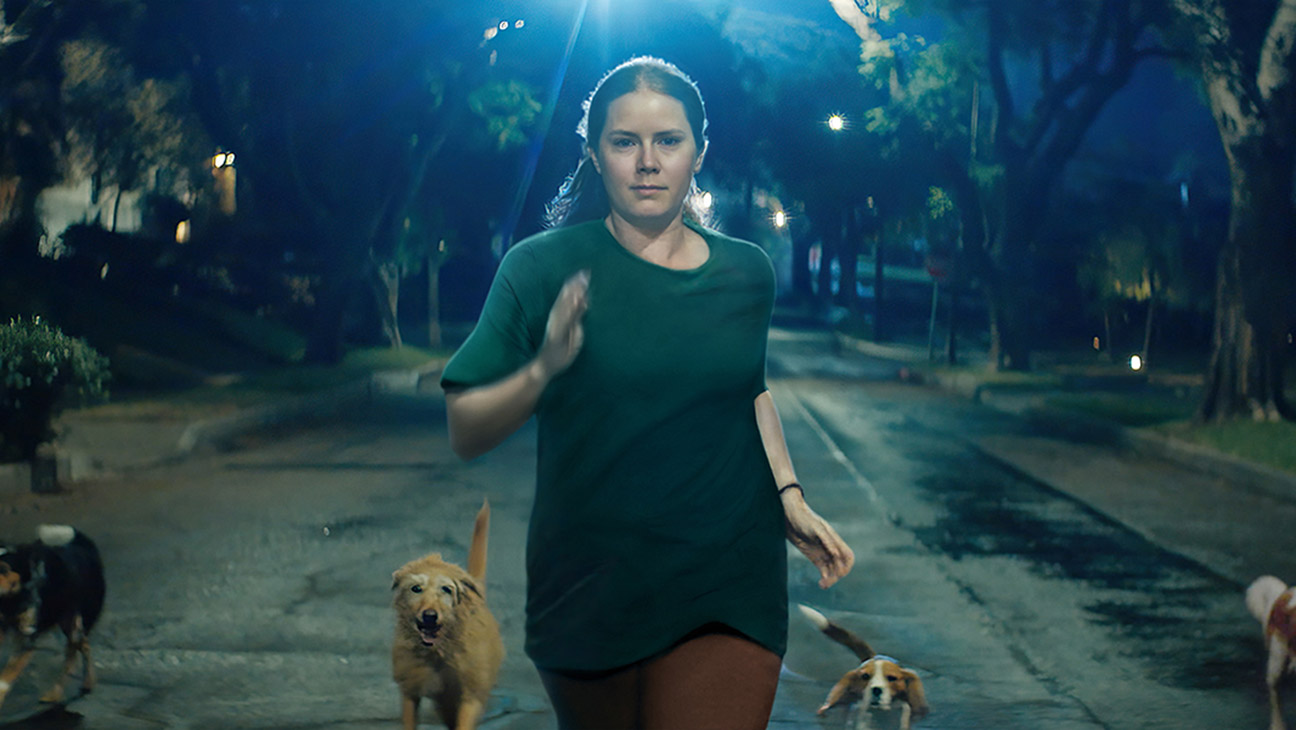‘Nightbitch’: Amy Adams Goes Beast Mode in Painful Portrayal of Motherhood [TIFF 2024 Review]

There’s a pervasive medical myth that women’s bodies have been designed to forget the pain of childbirth. This would allegedly better the odds that a woman would choose to go through the process again. The lie is both an acknowledgment of the brutality of the birthing process and a false promise of mercy. It plays on our preconceptions that childbearing is mystical, making it easier to assume there must be an innate system to subdue or prevent the grotesque suffering that it truly entails. Nightbitch by filmmaker Marielle Heller, based on the novel by Rachel Yoder, pulls back the curtain on myths like these to offer an almost unbearably honest view of the suffering, grief, and incredible power of motherhood.
Amy Adams (Sharp Objects) stars in this story of a young, nameless mother who has settled into the mundane and frequently torturous routine of a stay-at-home mom. One with very little help from her husband, who constantly travels for work. The days bleed together, and the repetition of taking care of a difficult child starts slowly driving her mad. Still, there are just as many moments of joy and adoration for her son as there are moments of devastation for the loss of her previous identity.
The growing resentment is not directed at her child but at the system that has trapped her in the suburbs. It’s at the false promise of purpose that has removed her from her promising career as an exciting installation artist—and at an institution that has stripped her of herself. But just when all hope seems lost, she’s faced with the beginning of an unexpected transformation.

It starts with a transition of behavior between Adams and her son. Rigidity is lifted, and the two play more freely, making messes and eating without utensils. There’s a new, noticeable retreat from structure. When a pack of dogs takes a liking to Adams and her son at the park, it’s not long thereafter that she notices a physical transformation take hold. A patch of fur appears on her lower back, as do six extra nipples on her front. This nightmare is partially presented through comedy and partially through magical realism. To some degree, none of it is all that reliable since the changes are not there when her husband is witness to her body. The line between figurative and literal is smudged. But all that matters is that this woman is changing. And soon, her life will change, too.
The promotional materials for Nightbitch don’t give a real sense of what you’re getting into with Heller’s latest production. It’s not that the trailer or poster is misleading; instead, it’s a difficult film to categorize. It’s not a genre film, although there is plenty of nightmarish body horror to please or possibly repel fans, depending on what they’re looking for. The painful and uncensored view of a woman’s body, not as an object of majesty but as a monstrous beast, is part of what makes this story of mothers so refreshingly honest. We’ve become accustomed to seeing a woman’s pregnant body as “glowing” and as a thing of beauty. I’m sure that’s true. But what we often refuse to acknowledge is the blood, the feces, and the piss that accompanies this process. Heller’s brutal and feral use of body horror is a brilliant way to bust the myths of delicate, porcelain motherhood. Instead, it’s a celebration of its messy power.
And while the film is not horror, it’s also not quite a drama or comedy. Somehow, it’s all of the above. Yet this tonal confusion never works against it. This chaos of category instead embraces the film’s thesis that motherhood and womanhood are undefinable. Not good, not bad, but something to respect and maybe even fear. It’s not a takedown of motherhood, but it’s not exactly a celebration. Instead, Nightbitch is a complicated discussion of its nastiness, its beauty, and the systems positioned to subjugate women with its cause.

When Amy Adam’s character is asked, point blank, if she regrets having a child, her answer is no. This moment/answer does not negate the suffering and identity crisis that motherhood has been partially responsible for inflicting on her. Yet, it’s also an acceptance of its joys and mysterious wonder. Heller’s film brilliantly captures the truth of what can make modern motherhood so isolating. It’s also a takedown of the ancient, misogynist societal systems established to control and, on a level, imprison women. Only when parents become aware of this can there be equality and true division of labor.
-
Nightbitch
Summary
Amy Adams is brilliant in ‘Nightbitch,’ an almost unbearably honest portrayal of the grotesque suffering and awesome power of motherhood.
Categorized: Reviews
